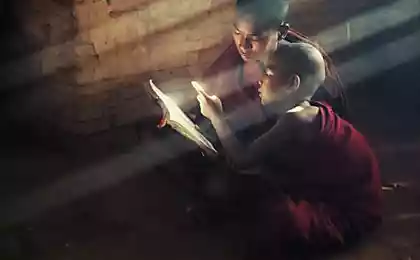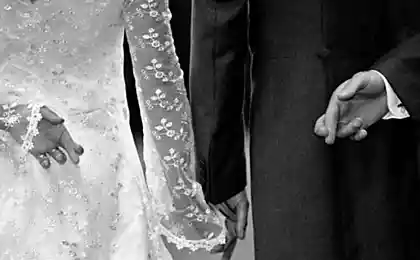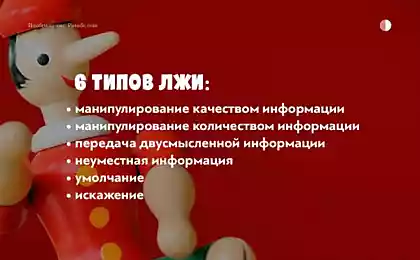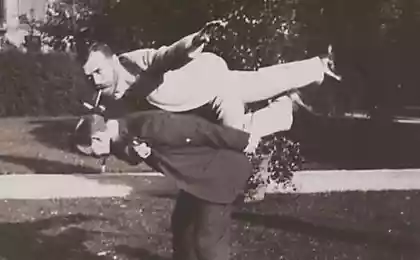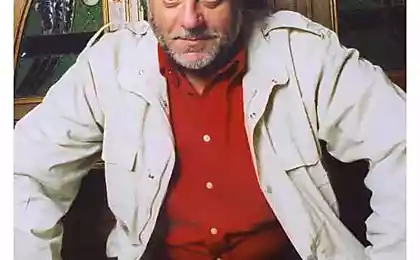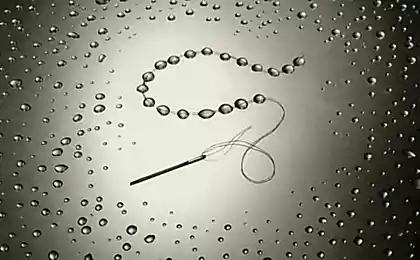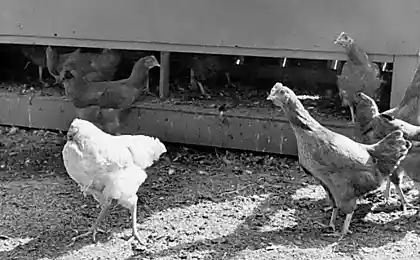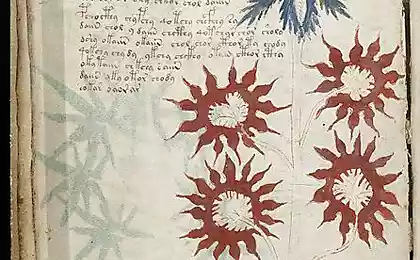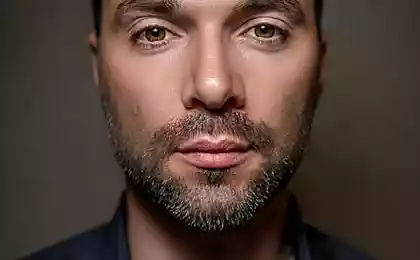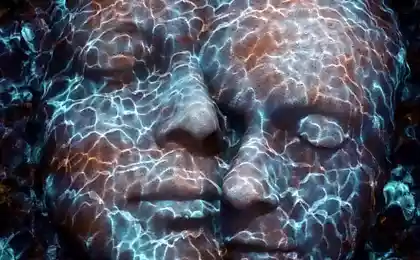368
The thought spoken is a lie: Alexander Dragunkin on the linguistic roots
We are used to the fact that the main world language is English, and our native Russian has been doing only that lately, borrowing a word from there, a word from here. But is that true?
A graduate of the Oriental Faculty of LSU, a linguist, the author of several sensational books Alexander Dragunkin claims that everything was just the opposite. Moreover, he concluded that Old Russian was the proto-language of the whole Earth!

The English are descendants of the Rus?
It all started with English, which I taught for many years, Alexander Dragunkin told us the background of his discovery. The further I went, the more I was dissatisfied with the method of teaching him, and some new ideas came to light. In 1998, I sat down to write my first book, a guide to English. I stopped going to the office, locked myself at home and rattled something on the most primitive computer in a month. In that paper, I proposed my own way of quickly memorizing English words, similar to Russian words. And while developing it, I came across the obvious: English words are not just like Russian – they are of Russian origin.
- Can you prove that?
- Sure. Remember the three basic rules of philology.
Here are some examples.
- Please.
The English word GIRL (girl – girl) has no origin in its homeland. But in Old Russian there was a wonderful word that called young people – Gorlitsa! The backbone of consonants is the same, and the English word is shorter - so who took the floor from whom?
Another example is the English Revolt. Let’s say you don’t know what that means – now we’ll see who stole from whom. Any Latinist will tell you that RE is a prefix, VOL is a root, and “mysterious T.” Where it came from, Western philologists do not even say. But I am a simple person: let’s assume the idiotic version – that the English took this word from someone and eventually distorted it. Then, if RE is a prefix meaning “repetition”, and the English took this prefix from someone, then in a thousand years it could only become shorter (remember the philological law). So we can assume that initially it was longer. So, in the whole world there is only one prefix that meant the same thing, but was longer – the Russian one!
L and P are interchangeable consonants from the same chain. We rewrite the word in Russian - PER-VOR-OT. REVOLT translates to “coup, rebellion,” so who borrowed from whom?
And the “mysterious T”, on which all English linguists stumble, turns out to be the most common Russian suffix. There are incredibly many such examples.
- And why should the British, who live on an island far from our vast homeland, try Russian words – they did not have their own?
- The English may well be descendants of the ancient Rus. There is absolutely official data (which, however, are often hushed up) that the Saxons - the ancestors of the British - did not come from somewhere, but from the Volga River. In the scientific world, it's an axiom. Saxons are the plural of the word sak. So on the Volga, they were SACs.
Further, according to the law on shortening a word when switching to another language, we conclude that this word could initially be longer. I don’t see any other explanation for the origin of the word Saki except from the pared-down Rusaki.
Matt wasn't invented by the Tatars.
- Okay, what about the other languages? You don't claim to know every language in the world, do you?
- I'm not saying. But I know many languages. I can safely communicate in English, French, Italian, German, Swedish, Polish. I know Japanese, but I don't speak Japanese. At the university he studied ancient Chinese, in his youth he seriously studied Hindi. So I can compare. Here's an example.
Take the Latin word SECRET (secret, something hidden). The whole world is staring at this word, but its origin is unknown. In addition, it does not decompose into components - there is no prefix or suffix. Some see the same “mysterious suffix T.” The most dashing Western philologists distinguish the root CR is the Latin CER, “to see”. But why is the “secret” that is hidden based on the root of “seeing”? This is absurd!
I do it differently – I brazenly write the same letters in ancient Russian – SKRIT. And I get a complete similarity of meaning, a clear prefix C, a beautiful root and our native suffix. Remember that vowels are not important to philology.
Or the word "harem." The fact that Russian princes before the Romanovs had crowds of concubines is a historical fact. If I have many beautiful wives, where will I keep them? In the best rooms, which in Russia were called Khoromy - remember the chains of alternating consonants - so where did the word Garem come from?
- So we borrowed everything from us, not from strangers?
- Of course! I have refuted even the established “Tatar” theory of the origin of the Russian mat.
- There were no Tatars?
- It wasn’t, it was just our invention. I can demonstrate. We have the word star - it's a star. Stars are distorted “light.” That is, the star is what “light-it”. And if we go according to this scheme of word formation, what will be called what “write”? That's one word.
Where did the word “stick” come from? It was originally called phalka because it was phaled, shoved. English stick (stack, stick) is clearly our pumpkin, “pumper”. Let’s return to the word “phat” – form an imperative inclination, as with the word “suck”: owl – sui, phan – what?
And the "p" dropped over time. The most interesting thing with the verb - only in Russian you can say: "I fucked her." M and B, as you remember, alternate – replace the letter M in the word “have” and see what happens.
- Well, mate is not proof that Old Russian is the proto-language of the whole world.
- All right, here's another thing: the titles of all the sacred religious books are of Russian origin.
- Even the Koran?
- Yeah. In the Arab world, it is believed that this word has no etymology. But there is.
The Qur’an is the revelation of the Prophet Muhammad, collected by the scribe Zeid – and preserved by him!
The Qur'an is a So-Shran.
The Torah is even simpler with the Jewish Torah: this is a book about creation – the Torah is T (in) orah.
The Bible is written on paper, and paper is made from cotton. Cotton in Slavic is called Bavelna – BiBLe. The Bible is just a stack of paper!
I am not talking about the Indian Vedas at all: here the origin of the word to know is obvious. Each of these explanations can be challenged individually, but it is interesting that all the names have the correct interpretation only through Russian.
- What about the names of gods and ministers?
- Allah. If we assume that this word is not Arabic and eventually lost the first consonant, then there is only one word that also corresponds to the meaning - Wallach - Volkhv, and the Magi were priests.
There is also the Russian root MOL, from which the word “pray” originated. The Mol is the same as the Mullah who asks God. In English, the priest PRieST - in Russian letters PROSIT.
I don’t believe there can be so many coincidences. The fact that words are similar and have the same meaning is half the battle. But note: in all cases when a word in its “native” language can not find its origin, in Russian it acquires a quite logical etymology – and all its riddles, it is unclear where the suffixes that traditional philology cannot explain, become completely normal parts of the word in Russian!
Our language is amazing. It takes us to the bottom of the world – I’m sure it was created artificially, and it encrypted the matrix of the universe.

What is hell and paradise?
- Have you been able to decipher anything?
- Very interesting things. For example, only in Russian the whole world around a person was described using one syllable with the root BL (taking into account the chains of alternation of consonants).
What was around the ancient man? BoR, MoRe, Field, Bolotho, PAR (as used to be called air) and so on.
The entire animal world is described on a geometrical basis only in Russian: in other languages, these are words taken out of context, in our own language they form a system. Living beings were described using three roots, which are body forms. For example, all Round is described with the help of the root of KR / GL and its derivatives - Golov, Eye, GorLo, Kolyo, Golen.
Further, only in the Russian language was man isolated from the rest of the animal world on the main feature – reason. The mind is in the head, which used to have another name – the human. How we were separated from the world – we were called the man of the century!
- Did our ancestors learn about the world from language?
- Our forefathers knew everything, because everything was described simply in language. Paradise is nothing but a stripped-down edge where everything is great and cool.
Hell is just what is beneath us. Remember the word “star” – light-yes – long before telescopes, people who spoke Russian knew that stars are not just holes in the sky, but what shines emits light!
- You said the language was created artificially. Why did you even create it? Love can be expressed in the number of mammoths killed.
- The Russian language also answers this question. Remember Tyutchev’s famous phrase: “A thought spoken is a lie”? What did the poet mean? I'll show you.
In Russian, there are three verbs that mean the process of speech – to speak, say, say (or expound). But what is interesting is that only in Russian, the three verbs that mean lies have the same roots: to speak – to lie, to lie – to lie, to tell – to tell.
Language was not originally created to exchange information, but as a tool for its distortion, a way of influencing it.
Now, of course, we already use it to communicate. However, be sure – of all the peoples of the world, only we speak the most direct descendant of the proto-language.
- And who created it?
- Those who created humanity.
Also interesting: How the brain works while reading
Russian phrases: the secret meaning
These words are considered borrowed Russian language in recent centuries. However, Alexander Dragunkin is convinced of their Russian "origin".
P.S. And remember, just by changing your consciousness – together we change the world!
Source: cont.ws/post/315838
A graduate of the Oriental Faculty of LSU, a linguist, the author of several sensational books Alexander Dragunkin claims that everything was just the opposite. Moreover, he concluded that Old Russian was the proto-language of the whole Earth!

The English are descendants of the Rus?
It all started with English, which I taught for many years, Alexander Dragunkin told us the background of his discovery. The further I went, the more I was dissatisfied with the method of teaching him, and some new ideas came to light. In 1998, I sat down to write my first book, a guide to English. I stopped going to the office, locked myself at home and rattled something on the most primitive computer in a month. In that paper, I proposed my own way of quickly memorizing English words, similar to Russian words. And while developing it, I came across the obvious: English words are not just like Russian – they are of Russian origin.
- Can you prove that?
- Sure. Remember the three basic rules of philology.
- One: You can ignore the vowels in the word, the most important thing is the backbone of consonants.
- Two: Consonants are very clearly grouped at the place of formation in the mouth - for example, L, R, H are formed by different movements of the tongue, but in the same part of the palate. Try to say them and see for yourself. There are several such chains of consonants: w-m-b-p-f, l-r-s-t-d-n, h-t-g-z-g, w-r-h, s-t-h (j). When a word is borrowed, it is possible to replace letters according to these chains.
- And third The rule: when switching from one language to another, the word can only shorten, and most often the first syllable disappears.
Here are some examples.
- Please.
The English word GIRL (girl – girl) has no origin in its homeland. But in Old Russian there was a wonderful word that called young people – Gorlitsa! The backbone of consonants is the same, and the English word is shorter - so who took the floor from whom?
Another example is the English Revolt. Let’s say you don’t know what that means – now we’ll see who stole from whom. Any Latinist will tell you that RE is a prefix, VOL is a root, and “mysterious T.” Where it came from, Western philologists do not even say. But I am a simple person: let’s assume the idiotic version – that the English took this word from someone and eventually distorted it. Then, if RE is a prefix meaning “repetition”, and the English took this prefix from someone, then in a thousand years it could only become shorter (remember the philological law). So we can assume that initially it was longer. So, in the whole world there is only one prefix that meant the same thing, but was longer – the Russian one!
L and P are interchangeable consonants from the same chain. We rewrite the word in Russian - PER-VOR-OT. REVOLT translates to “coup, rebellion,” so who borrowed from whom?
And the “mysterious T”, on which all English linguists stumble, turns out to be the most common Russian suffix. There are incredibly many such examples.
- And why should the British, who live on an island far from our vast homeland, try Russian words – they did not have their own?
- The English may well be descendants of the ancient Rus. There is absolutely official data (which, however, are often hushed up) that the Saxons - the ancestors of the British - did not come from somewhere, but from the Volga River. In the scientific world, it's an axiom. Saxons are the plural of the word sak. So on the Volga, they were SACs.
Further, according to the law on shortening a word when switching to another language, we conclude that this word could initially be longer. I don’t see any other explanation for the origin of the word Saki except from the pared-down Rusaki.
Matt wasn't invented by the Tatars.
- Okay, what about the other languages? You don't claim to know every language in the world, do you?
- I'm not saying. But I know many languages. I can safely communicate in English, French, Italian, German, Swedish, Polish. I know Japanese, but I don't speak Japanese. At the university he studied ancient Chinese, in his youth he seriously studied Hindi. So I can compare. Here's an example.
Take the Latin word SECRET (secret, something hidden). The whole world is staring at this word, but its origin is unknown. In addition, it does not decompose into components - there is no prefix or suffix. Some see the same “mysterious suffix T.” The most dashing Western philologists distinguish the root CR is the Latin CER, “to see”. But why is the “secret” that is hidden based on the root of “seeing”? This is absurd!
I do it differently – I brazenly write the same letters in ancient Russian – SKRIT. And I get a complete similarity of meaning, a clear prefix C, a beautiful root and our native suffix. Remember that vowels are not important to philology.
Or the word "harem." The fact that Russian princes before the Romanovs had crowds of concubines is a historical fact. If I have many beautiful wives, where will I keep them? In the best rooms, which in Russia were called Khoromy - remember the chains of alternating consonants - so where did the word Garem come from?
- So we borrowed everything from us, not from strangers?
- Of course! I have refuted even the established “Tatar” theory of the origin of the Russian mat.
- There were no Tatars?
- It wasn’t, it was just our invention. I can demonstrate. We have the word star - it's a star. Stars are distorted “light.” That is, the star is what “light-it”. And if we go according to this scheme of word formation, what will be called what “write”? That's one word.
Where did the word “stick” come from? It was originally called phalka because it was phaled, shoved. English stick (stack, stick) is clearly our pumpkin, “pumper”. Let’s return to the word “phat” – form an imperative inclination, as with the word “suck”: owl – sui, phan – what?
And the "p" dropped over time. The most interesting thing with the verb - only in Russian you can say: "I fucked her." M and B, as you remember, alternate – replace the letter M in the word “have” and see what happens.
- Well, mate is not proof that Old Russian is the proto-language of the whole world.
- All right, here's another thing: the titles of all the sacred religious books are of Russian origin.
- Even the Koran?
- Yeah. In the Arab world, it is believed that this word has no etymology. But there is.
The Qur’an is the revelation of the Prophet Muhammad, collected by the scribe Zeid – and preserved by him!
The Qur'an is a So-Shran.
The Torah is even simpler with the Jewish Torah: this is a book about creation – the Torah is T (in) orah.
The Bible is written on paper, and paper is made from cotton. Cotton in Slavic is called Bavelna – BiBLe. The Bible is just a stack of paper!
I am not talking about the Indian Vedas at all: here the origin of the word to know is obvious. Each of these explanations can be challenged individually, but it is interesting that all the names have the correct interpretation only through Russian.
- What about the names of gods and ministers?
- Allah. If we assume that this word is not Arabic and eventually lost the first consonant, then there is only one word that also corresponds to the meaning - Wallach - Volkhv, and the Magi were priests.
There is also the Russian root MOL, from which the word “pray” originated. The Mol is the same as the Mullah who asks God. In English, the priest PRieST - in Russian letters PROSIT.
I don’t believe there can be so many coincidences. The fact that words are similar and have the same meaning is half the battle. But note: in all cases when a word in its “native” language can not find its origin, in Russian it acquires a quite logical etymology – and all its riddles, it is unclear where the suffixes that traditional philology cannot explain, become completely normal parts of the word in Russian!
Our language is amazing. It takes us to the bottom of the world – I’m sure it was created artificially, and it encrypted the matrix of the universe.

What is hell and paradise?
- Have you been able to decipher anything?
- Very interesting things. For example, only in Russian the whole world around a person was described using one syllable with the root BL (taking into account the chains of alternation of consonants).
What was around the ancient man? BoR, MoRe, Field, Bolotho, PAR (as used to be called air) and so on.
The entire animal world is described on a geometrical basis only in Russian: in other languages, these are words taken out of context, in our own language they form a system. Living beings were described using three roots, which are body forms. For example, all Round is described with the help of the root of KR / GL and its derivatives - Golov, Eye, GorLo, Kolyo, Golen.
Further, only in the Russian language was man isolated from the rest of the animal world on the main feature – reason. The mind is in the head, which used to have another name – the human. How we were separated from the world – we were called the man of the century!
- Did our ancestors learn about the world from language?
- Our forefathers knew everything, because everything was described simply in language. Paradise is nothing but a stripped-down edge where everything is great and cool.
Hell is just what is beneath us. Remember the word “star” – light-yes – long before telescopes, people who spoke Russian knew that stars are not just holes in the sky, but what shines emits light!
- You said the language was created artificially. Why did you even create it? Love can be expressed in the number of mammoths killed.
- The Russian language also answers this question. Remember Tyutchev’s famous phrase: “A thought spoken is a lie”? What did the poet mean? I'll show you.
In Russian, there are three verbs that mean the process of speech – to speak, say, say (or expound). But what is interesting is that only in Russian, the three verbs that mean lies have the same roots: to speak – to lie, to lie – to lie, to tell – to tell.
Language was not originally created to exchange information, but as a tool for its distortion, a way of influencing it.
Now, of course, we already use it to communicate. However, be sure – of all the peoples of the world, only we speak the most direct descendant of the proto-language.
- And who created it?
- Those who created humanity.
Also interesting: How the brain works while reading
Russian phrases: the secret meaning
These words are considered borrowed Russian language in recent centuries. However, Alexander Dragunkin is convinced of their Russian "origin".
- Galactica - from the Russian dialect "Galaga" (fog)
- Dollar, from DoL
- Calculator - from SKOLKO
- Laboratory - from RaBot (L and R alternate)
- LeDi – from LaDa (Ancient Russian goddess)
- HoTel (hotel) - from HaTa
- NeGR - from Unbelievable
- ELEMENT - from not breaking.
- SMOG from MGL
- Globus - from Kolobok (G and K alternate).
P.S. And remember, just by changing your consciousness – together we change the world!
Source: cont.ws/post/315838


